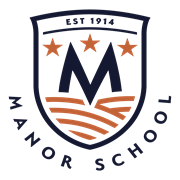Our vision for history at Manor School is to inspire and excite students through stimulating, coherently planned and challenging lessons. We want students to be curious and knowledgeable about the past to enable them to ask relevant questions. This is in line with the school’s aim to encourage high aspirations in order to maximize progress and enable all students to experience the joy of success. Our curriculum aims to help students understand how our modern, multicultural and democratic nation has been shaped by its history, as well as how international events have informed our relationship with the rest of the world. This is vital in enabling students to not only make sense of current events, but also in ensuring they respect and uphold shared values of tolerance, mutual respect and the rule of law. We want our young people to be inquisitive and emboldened by knowledge, as well as sharing our genuine passion for history as subject which is not “dead”, but very much alive through encouraging students to engage with genuine historical debate.
Through our curriculum, students also gain experience of interpreting evidence, making judgements, developing conclusions, as well as understanding other people’s perspectives. These skills are all essential in the modern work place and will enable our students to make educated decisions as citizens of the world. The study of history increases their ability to empathise, allows opportunities to be curious and develop resilience, and learn about real life examples of humanity and what this means to us.
All students should:
- know and understand the history of these islands as a coherent, chronological narrative, from the earliest times to the present day: how people’s lives have shaped this nation and how Britain has influenced and been influenced by the wider world
- know and understand significant aspects of the history of the wider world: the nature of ancient civilisations; the expansion and dissolution of empires; characteristic features of past non-European societies; achievements and follies of mankind
- gain and deploy a historically grounded understanding of abstract terms such as ‘empire’, ‘civilisation’, ‘parliament’ and ‘peasantry’
- understand historical concepts such as continuity and change, cause and consequence, similarity, difference and significance, and use them to make connections, draw contrasts, analyse trends, frame historically-valid questions and create their own structured accounts, including written narratives and analyses
- understand the methods of historical enquiry, including how evidence is used rigorously to make historical claims, and discern how and why contrasting arguments and interpretations of the past have been constructed
- gain historical perspective by placing their growing knowledge into different contexts, understanding the connections between local, regional, national and international history; between cultural, economic, military, political, religious and social history; and between short- and long-term timescales
Key Stage 3 Curriculum Information
In history at Manor School we take a thematic approach to studying life through the ages from the Anglo-Saxon times all the way to present day. Through the selected topics across Key Stage three we also explore key historical concepts such as change and continuity, cause and consequence and significance. This allows students to understand fully the achievements of the human race, as well as exploring the development of equality, social justice and the society we live in today. We cover a broad range of both British History as well as international topics including:
- Monarchy and religion
- Medicine through time
- Empire, trade and industry
- America from settlement to civil rights
- Power and protest
- Warfare through time
We have a clear vision for history at Manor and a clear plan for what all students should know and be able to do at the end of KS3. Students will be expected to have a coherent knowledge of topics covered and be able to confidently place their knowledge within a chronological framework. They should be able to communicate this knowledge and their understanding of it via second order concepts, including analysis of change and continuity, causation, assessing significance and interrogating sources and interpretations. We follow the National Curriculum for history. Our curriculum aims to ensure all students understand substantive concepts such as monarchy and democracy.
Key Stage 4 Curriculum Information
At KS4 students follow the Edexcel GCSE specification for History 9-1 GCSE.
We have selected a combination of topics that we believe the students will find engaging and interesting, covering a broad range of historical periods and places. Students in year 10 study crime and punishment through time 1000 – present day, with a study of the historical environment of Whitechapel. They also study the American West 1835 – 1895, and Elizabeth I 1558 – 1588. Then proceeding into year 11 students will study the Weimar Republic and Nazi Germany. The skills learned and practiced through the GCSE are transferable and allow students to construct evidence based arguments, explain why people hold different views of current affairs and weigh up evidence in order to make judgements on the validity of a variety of sources.
Edexcel GCSE History (2016) | Pearson qualifications
Key Stage 5 Curriculum Information
Students opting for History A level will also study the Edexcel specification, following route C Revolutions in early modern and modern Europe, including Britain 1625 – 1701 and Russia 1894 – 1924. Paper 3 of the A level is based on the witch craze 1550 – 1750, allowing students to study both at breadth and depth level, spanning a period of over 200 years. The topics selected offer something for all students, regardless of their preference of early or modern history.
Edexcel AS and A level History 2015 | Pearson qualifications
Curriculum Leader
Claire Johnson


